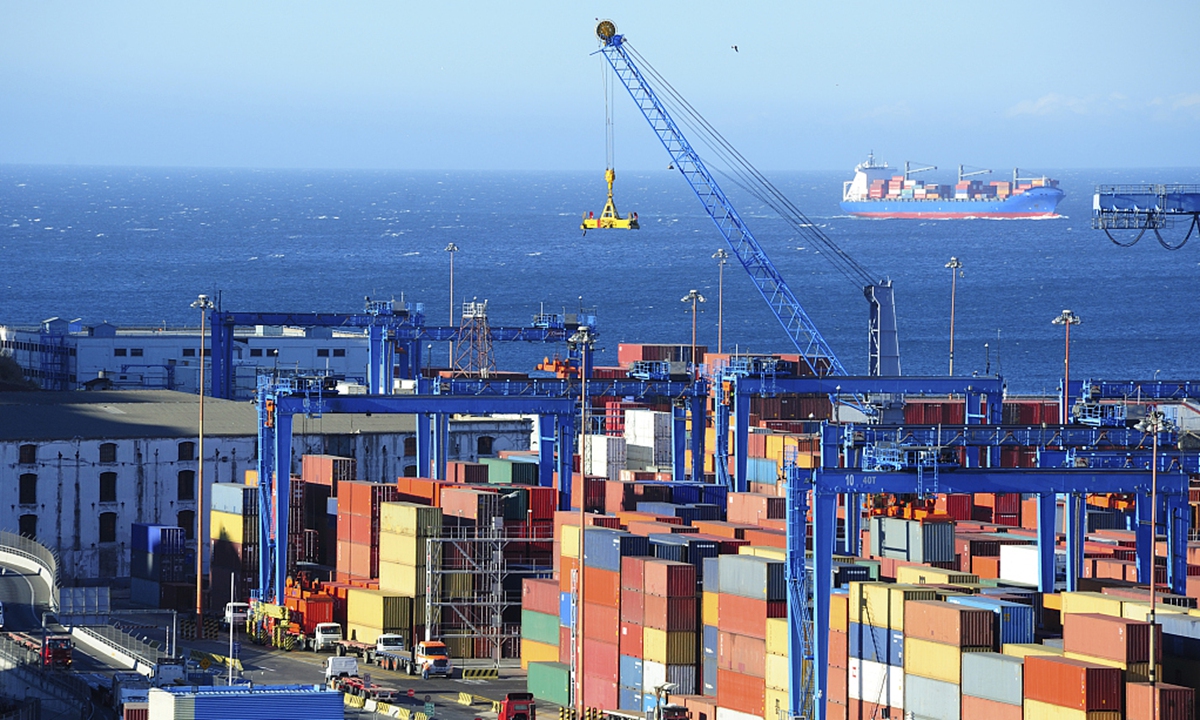
Photo: VCG
Premier Li Keqiang heard a report on the domestic efforts for the Regional Comprehensive Economic Partnership (RCEP) to take effect and get implemented when chairing the State Council executive meeting on Wednesday, and called for deepening reform and opening-up to promote industrial upgrading.
Competent departments have accelerated domestic work for its implementation. To date, legal review of the provisions, and formulation of the conversion plan for the tariff concession commitment schedule on trade in goods, have been completed. Substantive progress has been achieved in the technical preparations for implementing the cumulation provisions of the rules of origin. As much as 85 percent of the 701 binding obligations stipulated in the agreement are ready to be enforced.
"The RCEP agreement, signed among 15 participating countries, is beneficial to all," Li said. "Promoting its implementation is an important step to expand opening-up and advance reform. To keep major economic indicators within a reasonable range and consolidate recovery and growth, reform and opening-up should remain a key driving force."
The meeting highlighted the need to speedily push forward the reform of relevant domestic management mechanisms, step up the formulation of domestic management regulations on origin and implementation guidelines, refine work procedures and make targeted technical preparations to ensure that the agreement can be executed on the ground as soon as it takes effect.
In light of the new circumstances of a more open environment and greater competition following the implementation of the agreement, the meeting reaffirmed the need to sort out and refine the country's manufacturing quality standards and rules in line with the advanced international industrial standards. To further open up the service sector, preparations shall be made in raising standards and improving rules.
Inter-agency coordination shall be enhanced. Relevant domestic regulations and policies shall be sorted out and refined expeditiously in accordance with the agreement, and sector-specific plans drafted in selected key areas for RCEP implementation. Efforts shall be made for early consultations among participating countries on the conversion for tariff commitment schedules and for product-specific rules of origin, and on the guidelines for implementing the rules of origin, as institutional safeguards for the implementation of the agreement.
"The RCEP agreement is not merely about reducing or exempting tariffs. It specifies the cumulation provisions of rules of origin. Fully understanding and implementing the cumulative rules of origin will help lower the threshold for enjoying tariff concessions, promote intra-regional trade cooperation, and stabilize and strengthen the regional industrial and supply chains," Li said.
The meeting also required more training regarding RCEP implementation, to familiarize enterprises, especially micro and small firms, with the provisions and the tariff concession by participating countries, and with the application procedures and documentation required for the certificate of origin.
Guidance will be provided to businesses to shape a stronger sense of urgency for transformation and upgrading and a firm commitment to professional expertise, pursuit of excellence and greater management, to better participate in international cooperation and competition.
"The RCEP agreement is both an opportunity and a challenge. Intensive training programs should be organized to help businesses become well-informed about the agreement. Implementation of the agreement can be an opportunity to enable the manufacturing industry to move towards medium and high-end, upgrade product quality, and raise market competitiveness," Li said.
